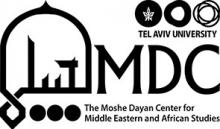Abstract:
"Bahrain’s independence and transition into the Petroleum era highlighted its lack of a shared identity, prompting both the Al Khalifa ruling family and the emerging opposition to construct collective memories. This study analyses three narratives released in the 1980s by the Bahraini government and two exiled Shiʿi groups – the Shiraziyun and the reformists – arguing that their discussion of the past is employed to assert Bahrain’s identity at present. The research aims to look beyond the sectarian divide by also exploring how other socioeconomic heterogeneities in Bahrain, alongside political motivations and regional context, have determined the events cited by each narrative and the characteristics and boundaries it attributed to Bahrain in history. It reveals that the narratives essentially reflect a dispute between Bahrain’s Sunni tribal elite and the Shiʿi sedentary populace over superior attachment and contribution to the country, either affirming or delegitimising the current hierarchy and distribution of power."
*The opinions expressed in MDC publications are the authors’ alone.








